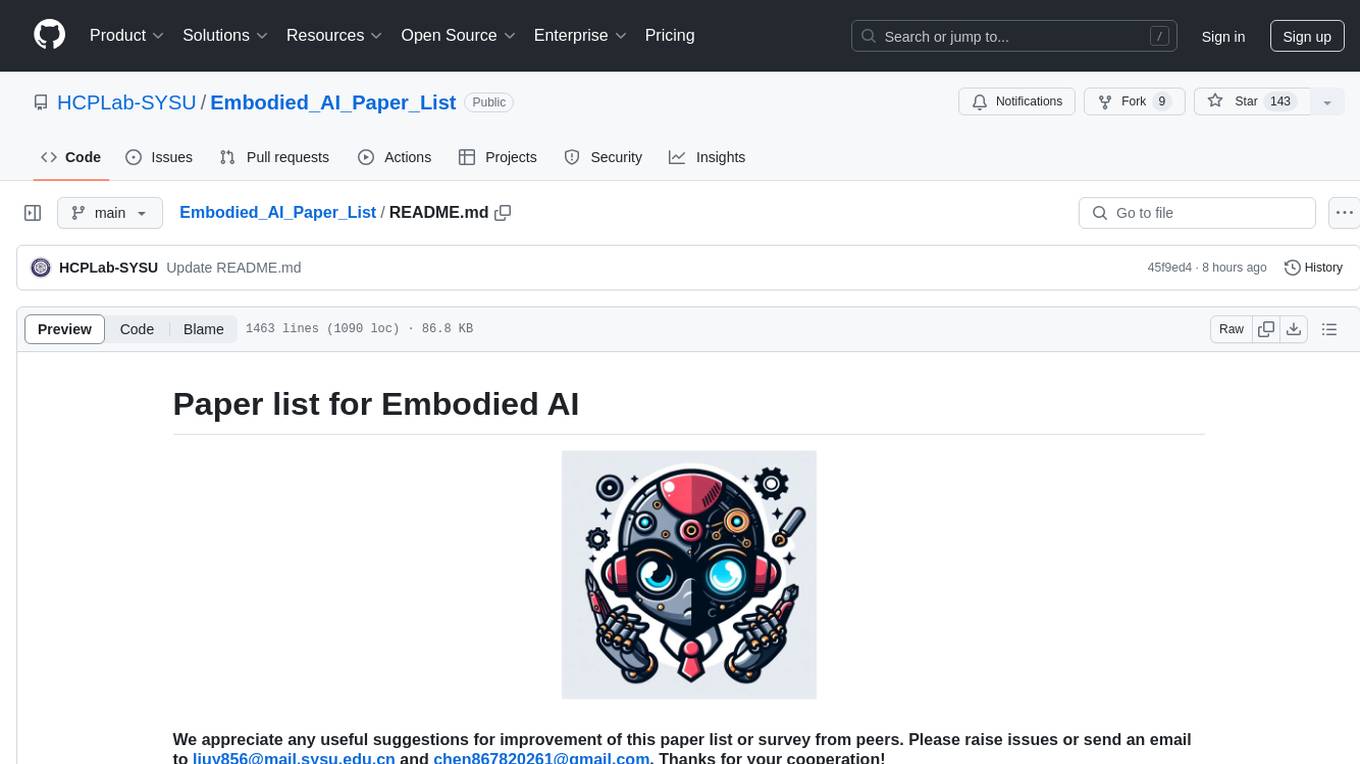
AI_and_Machine_Learning_for_Coders
This repository is based on AI and Machine learning for Coders book, I note my knowledge I have learned from the book in Vietnamese.
Stars: 185
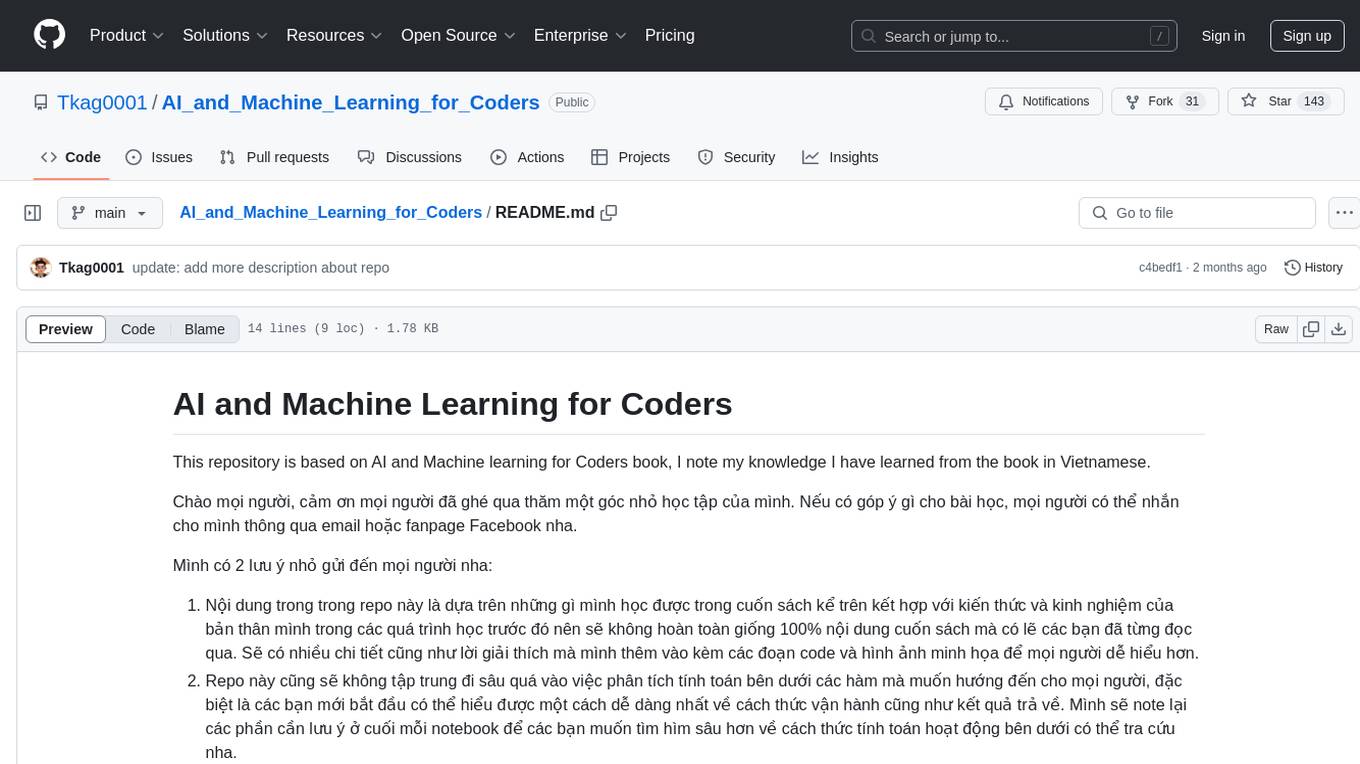
This repository is a collection of notes and knowledge based on the 'AI and Machine Learning for Coders' book, presented in Vietnamese. It includes additional explanations, code snippets, and illustrations to aid understanding. The content is a combination of the book's teachings and the author's personal experiences, tailored to help beginners grasp the operational aspects and results of computations easily.
README:
This repository is based on AI and Machine learning for Coders book, I note my knowledge I have learned from the book in Vietnamese.
Chào mọi người, cảm ơn mọi người đã ghé qua thăm một góc nhỏ học tập của mình. Nếu có góp ý gì cho bài học, mọi người có thể nhắn cho mình thông qua email hoặc fanpage Facebook nha.
Mình có 2 lưu ý nhỏ gửi đến mọi người nha:
- Nội dung trong trong repo này là dựa trên những gì mình học được trong cuốn sách kể trên kết hợp với kiến thức và kinh nghiệm của bản thân mình trong các quá trình học trước đó nên sẽ không hoàn toàn giống 100% nội dung cuốn sách mà có lẽ các bạn đã từng đọc qua. Sẽ có nhiều chi tiết cũng như lời giải thích mà mình thêm vào kèm các đoạn code và hình ảnh minh họa để mọi người dễ hiểu hơn.
- Repo này cũng sẽ không tập trung đi sâu quá vào việc phân tích tính toán bên dưới các hàm mà muốn hướng đến cho mọi người, đặc biệt là các bạn mới bắt đầu có thể hiểu được một cách dễ dàng nhất về cách thức vận hành cũng như kết quả trả về. Mình sẽ note lại các phần cần lưu ý ở cuối mỗi notebook để các bạn muốn tìm hìm sâu hơn về cách thức tính toán hoạt động bên dưới có thể tra cứu nha.
Gmail: [email protected]
Fanpage Facebook: Nhật ký học tập của Khang
For Tasks:
Click tags to check more tools for each tasksFor Jobs:
Alternative AI tools for AI_and_Machine_Learning_for_Coders
Similar Open Source Tools

AI_and_Machine_Learning_for_Coders
This repository is a collection of notes and knowledge based on the 'AI and Machine Learning for Coders' book, presented in Vietnamese. It includes additional explanations, code snippets, and illustrations to aid understanding. The content is a combination of the book's teachings and the author's personal experiences, tailored to help beginners grasp the operational aspects and results of computations easily.
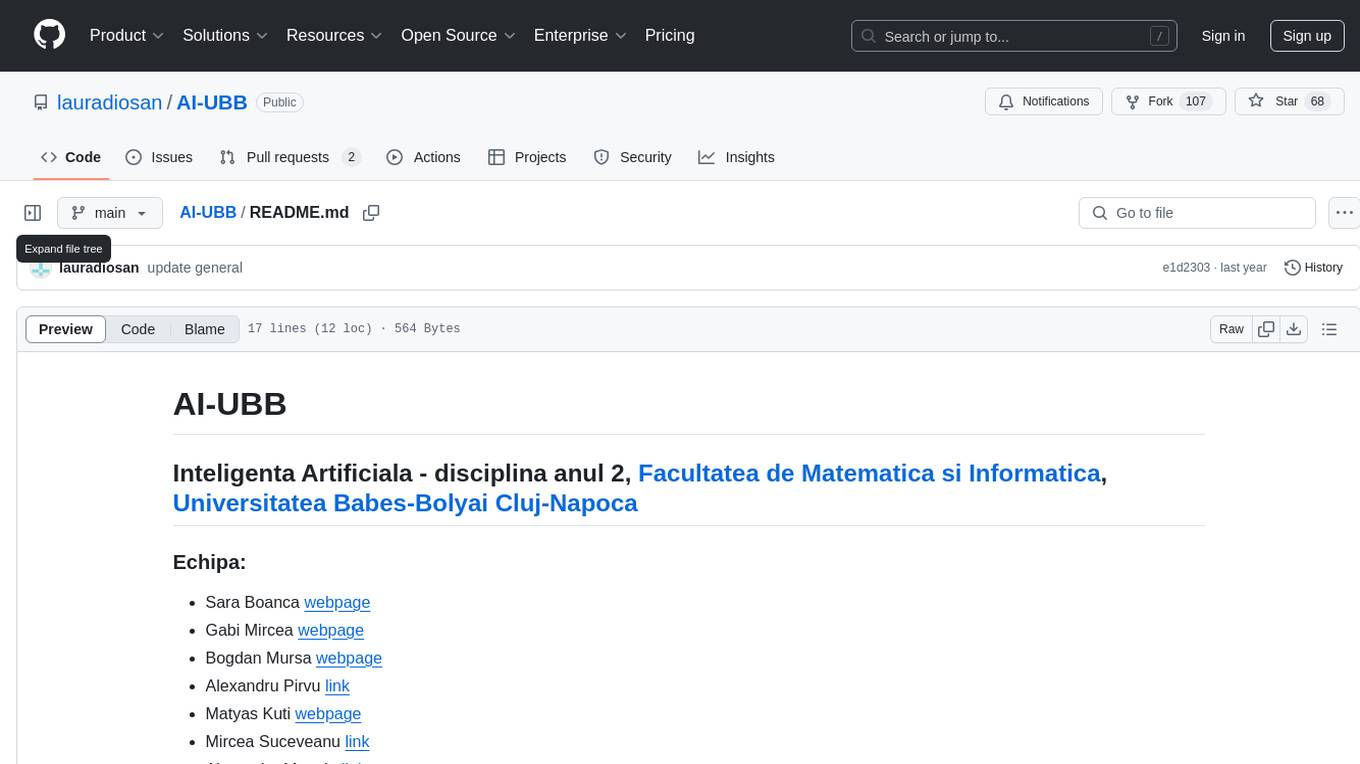
AI-UBB
AI-UBB is a project related to Artificial Intelligence discipline in the second year of the Faculty of Mathematics and Computer Science at Babes-Bolyai University in Cluj-Napoca. The project involves a team of students working on various aspects of AI under the guidance of their professors.
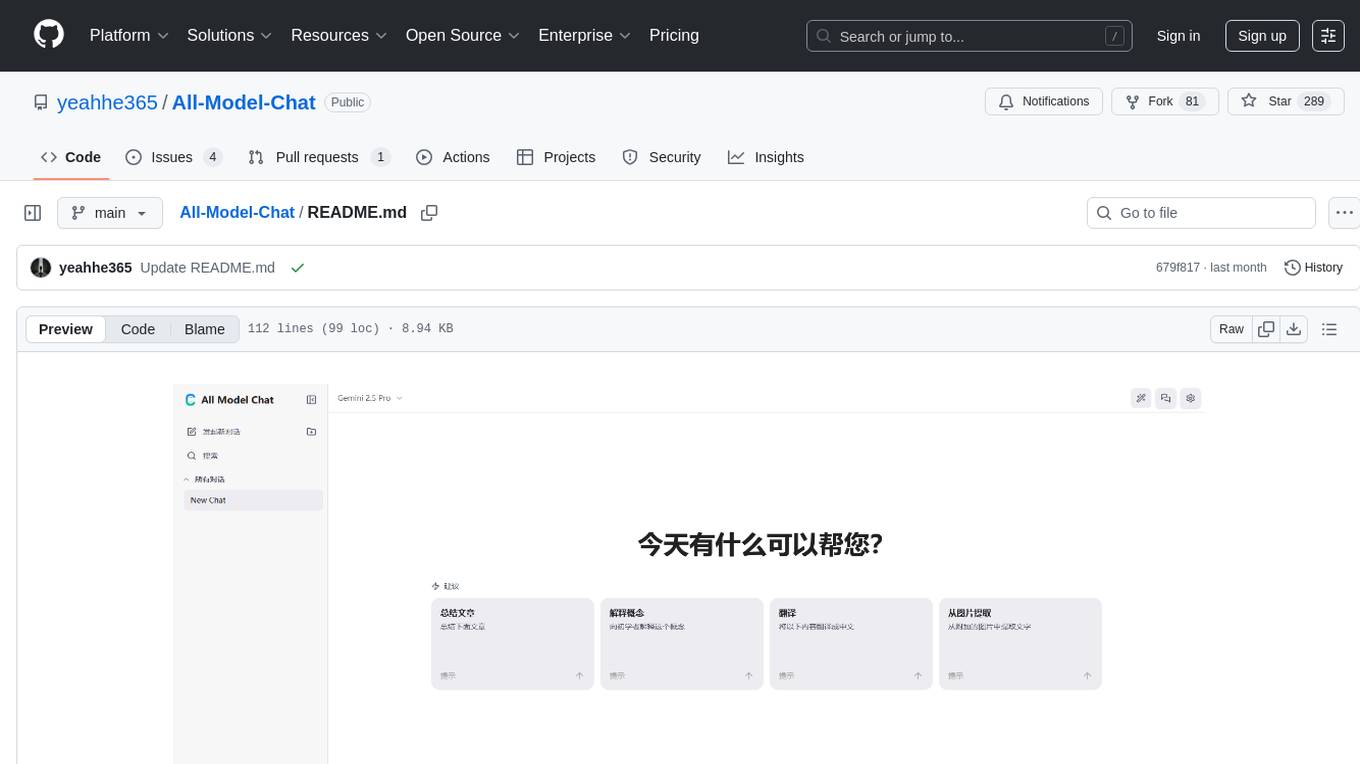
All-Model-Chat
All Model Chat is a feature-rich, highly customizable web chat application designed specifically for the Google Gemini API family. It integrates dynamic model selection, multimodal file input, streaming responses, comprehensive chat history management, and extensive customization options to provide an unparalleled AI interactive experience.
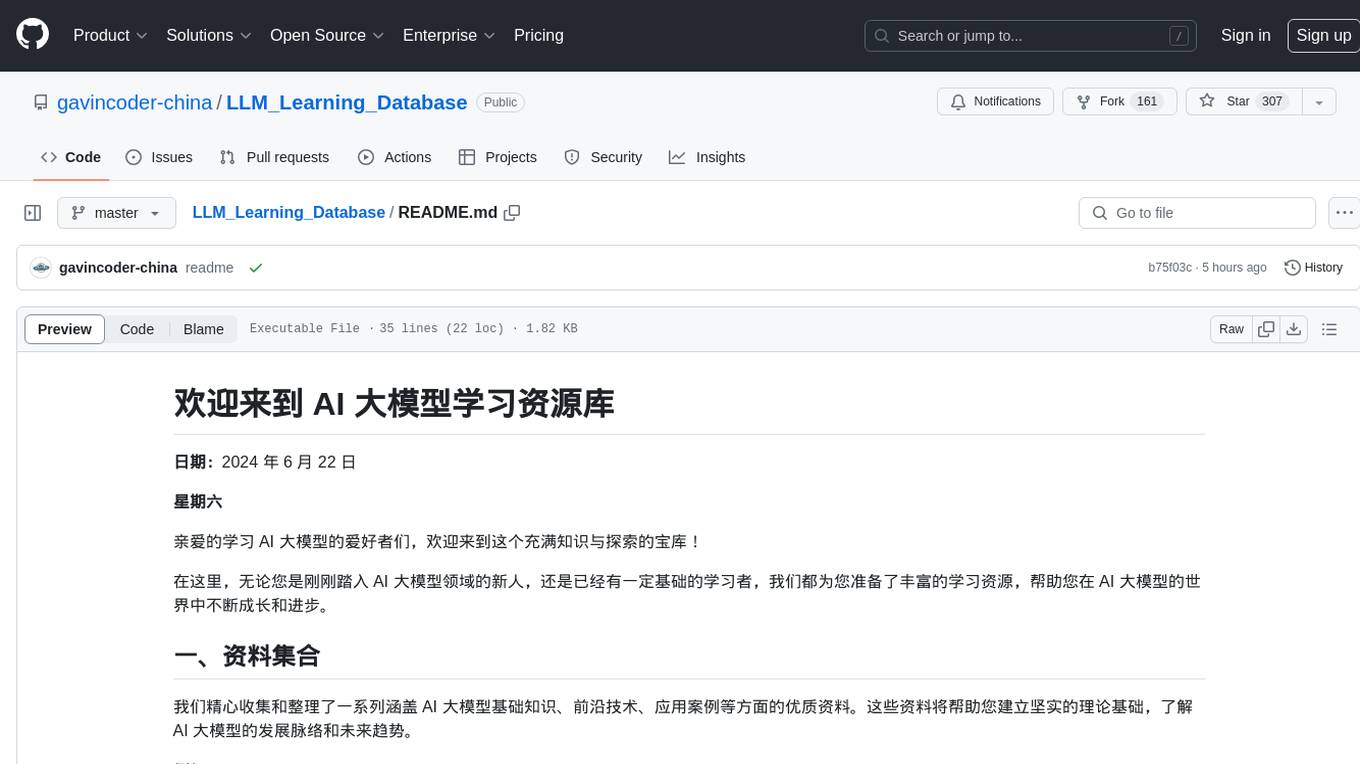
LLM_Learning_Database
LLM Learning Database is a comprehensive repository dedicated to AI large models, offering a curated collection of resources covering fundamental knowledge, cutting-edge technologies, and practical applications. It includes guides, case studies, code examples for model training, optimization, and deployment, as well as insightful articles from industry experts and scholars. Whether you are a beginner or an experienced learner in the field of AI large models, this repository aims to support your learning journey and foster continuous growth and progress.
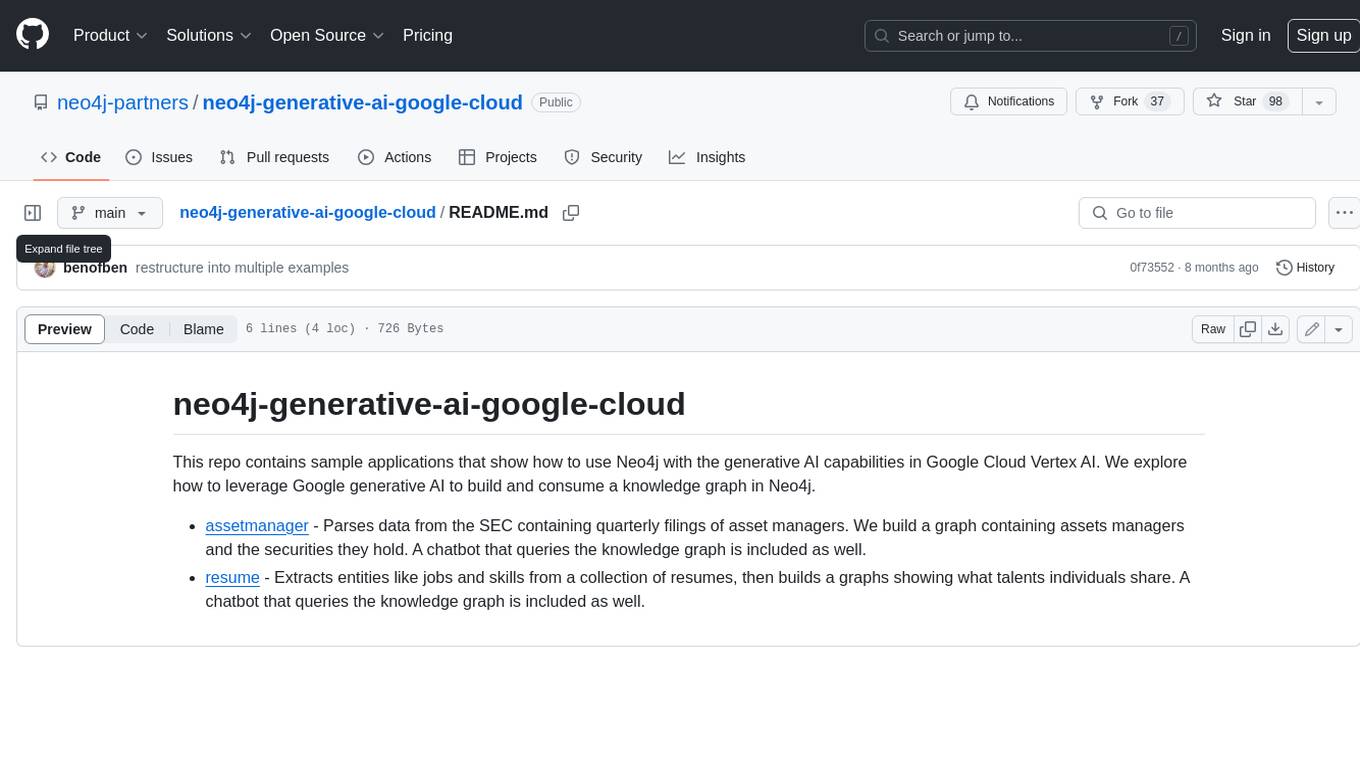
neo4j-generative-ai-google-cloud
This repo contains sample applications that show how to use Neo4j with the generative AI capabilities in Google Cloud Vertex AI. We explore how to leverage Google generative AI to build and consume a knowledge graph in Neo4j.
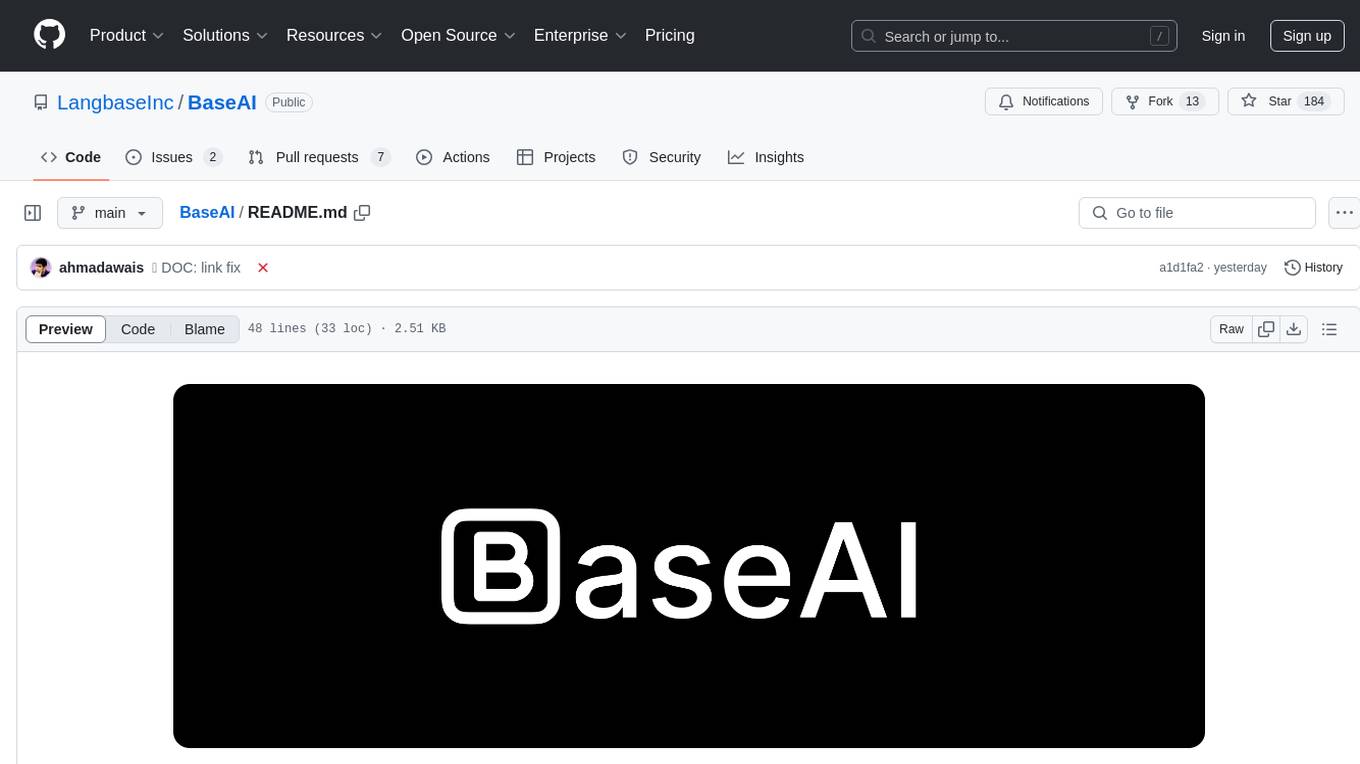
BaseAI
BaseAI is an AI framework designed for creating declarative and composable AI-powered LLM products. It enables the development of AI agent pipes locally, incorporating agentic tools and memory (RAG). The framework offers a learn guide for beginners to kickstart their journey with BaseAI. For detailed documentation, users can visit baseai.dev/docs. Contributions to BaseAI are encouraged, and interested individuals can refer to the Contributing Guide. The original authors of BaseAI include Ahmad Awais, Ashar Irfan, Saqib Ameen, Saad Irfan, and Ahmad Bilal. Security vulnerabilities can be reported privately via email to [email protected]. BaseAI aims to provide resources for learning AI agent development, utilizing agentic tools and memory.
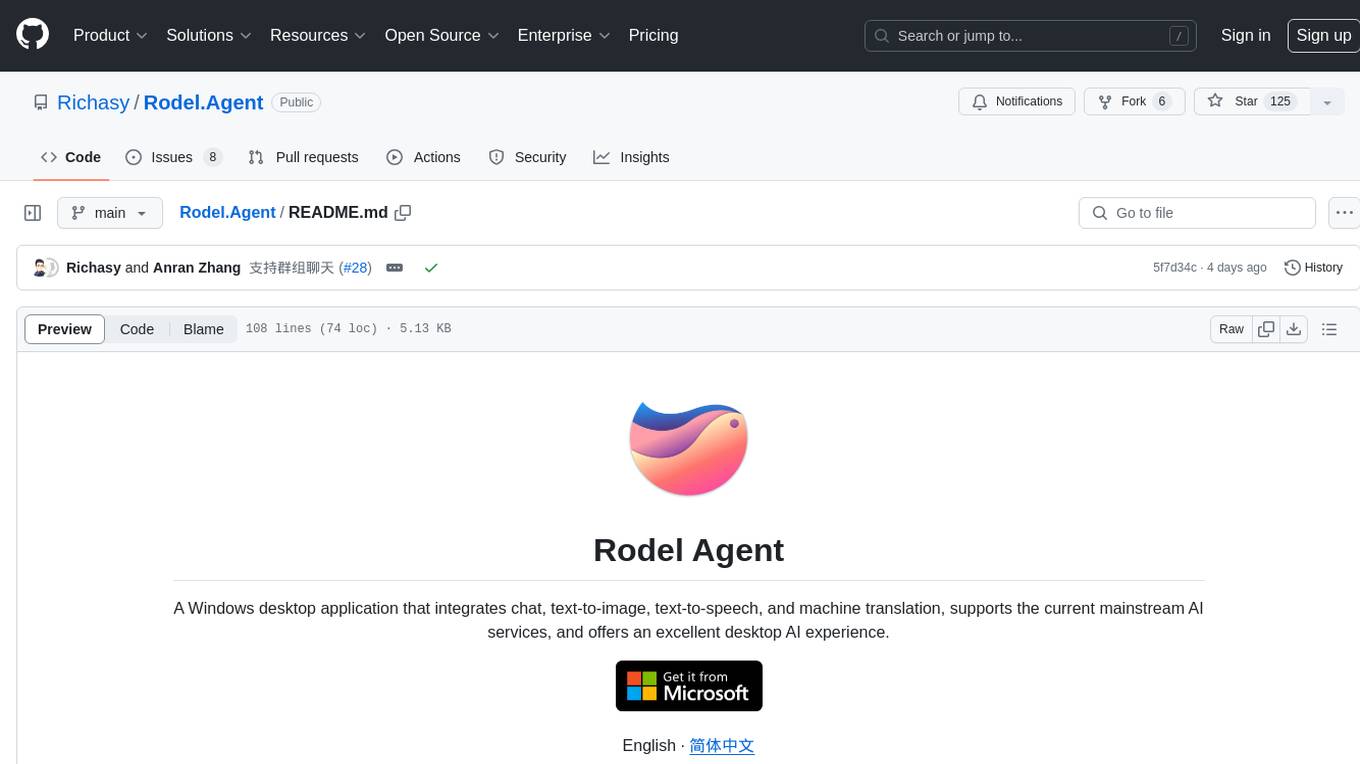
Rodel.Agent
Rodel Agent is a Windows desktop application that integrates chat, text-to-image, text-to-speech, and machine translation services, providing users with a comprehensive desktop AI experience. The application supports mainstream AI services and aims to enhance user interaction through various AI functionalities.
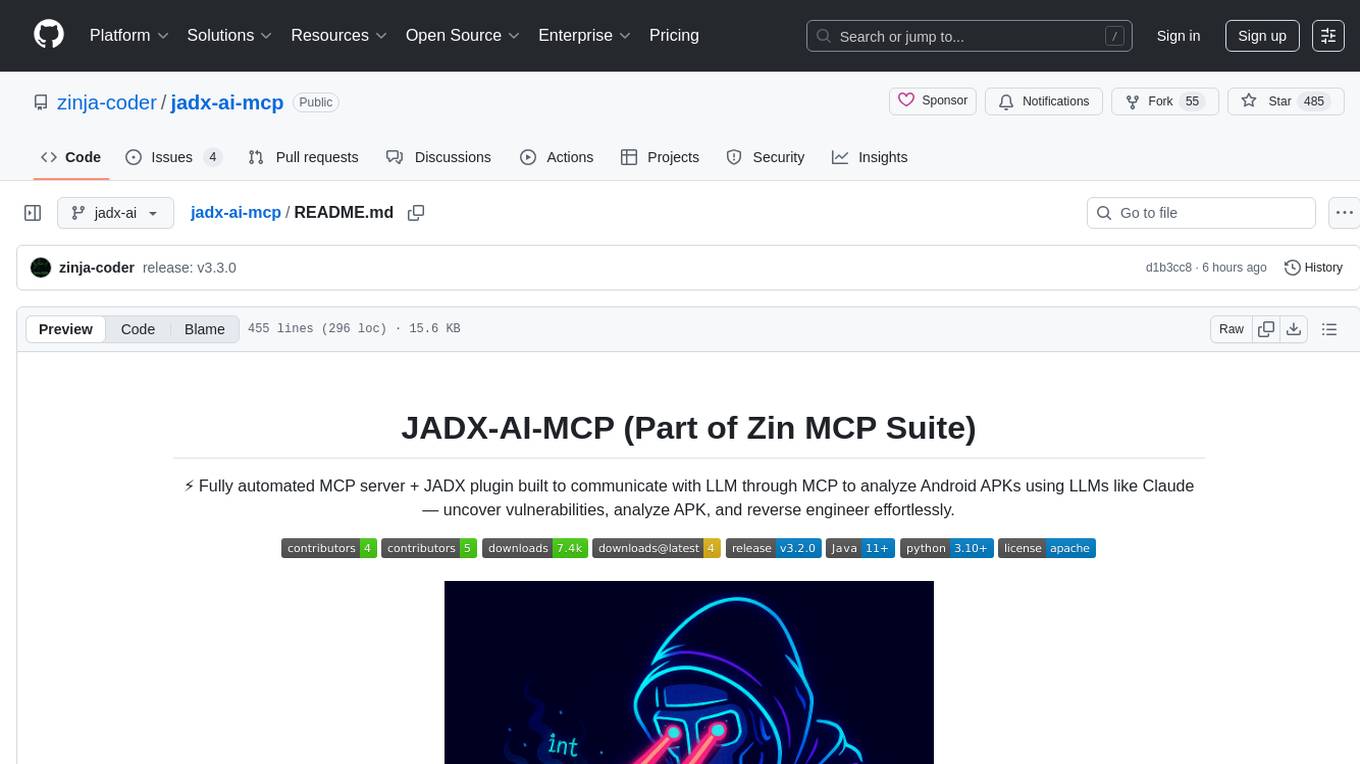
jadx-ai-mcp
JADX-AI-MCP is a plugin for the JADX decompiler that integrates with Model Context Protocol (MCP) to provide live reverse engineering support with LLMs like Claude. It allows for quick analysis, vulnerability detection, and AI code modification, all in real time. The tool combines JADX-AI-MCP and JADX MCP SERVER to analyze Android APKs effortlessly. It offers various prompts for code understanding, vulnerability detection, reverse engineering helpers, static analysis, AI code modification, and documentation. The tool is part of the Zin MCP Suite and aims to connect all android reverse engineering and APK modification tools with a single MCP server for easy reverse engineering of APK files.
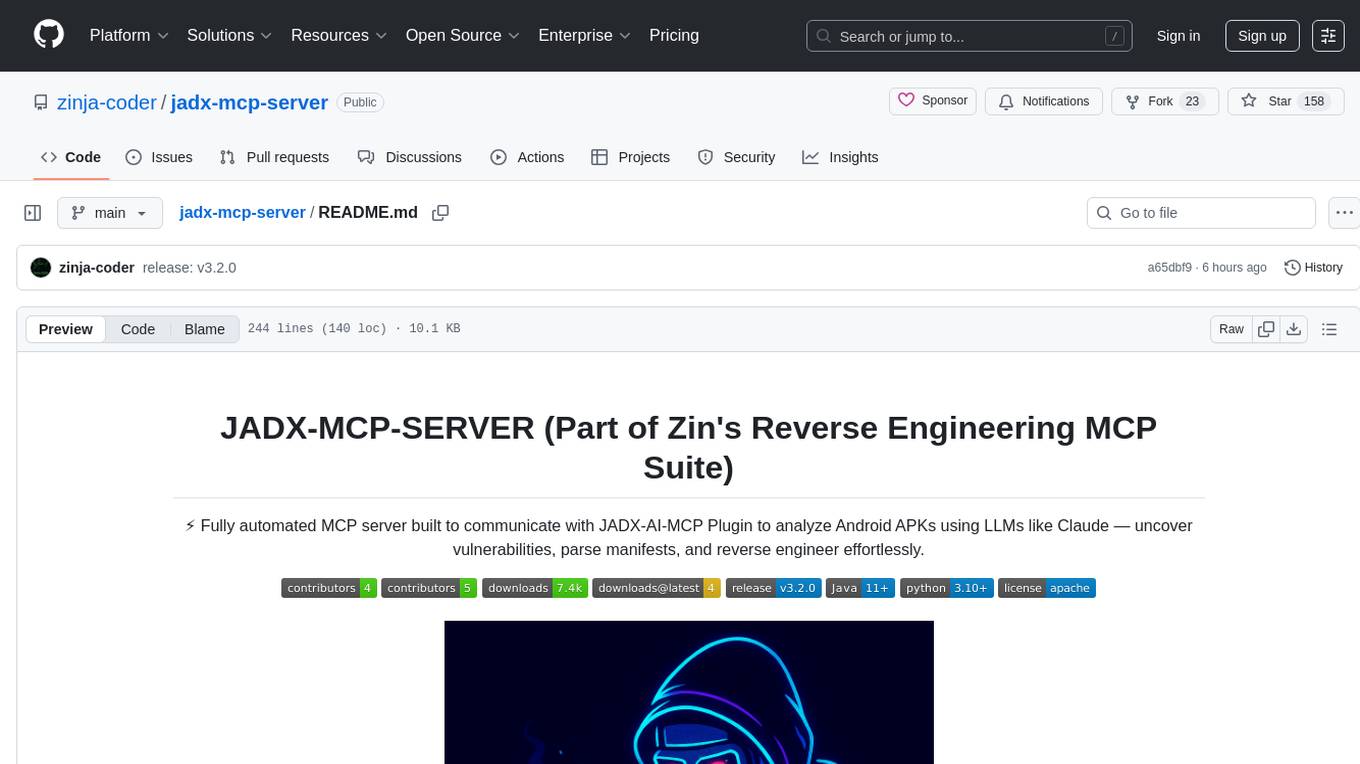
jadx-mcp-server
JADX-MCP-SERVER is a standalone Python server that interacts with JADX-AI-MCP Plugin to analyze Android APKs using LLMs like Claude. It enables live communication with decompiled Android app context, uncovering vulnerabilities, parsing manifests, and facilitating reverse engineering effortlessly. The tool combines JADX-AI-MCP and JADX MCP SERVER to provide real-time reverse engineering support with LLMs, offering features like quick analysis, vulnerability detection, AI code modification, static analysis, and reverse engineering helpers. It supports various MCP tools for fetching class information, text, methods, fields, smali code, AndroidManifest.xml content, strings.xml file, resource files, and more. Tested on Claude Desktop, it aims to support other LLMs in the future, enhancing Android reverse engineering and APK modification tools connectivity for easier reverse engineering purely from vibes.
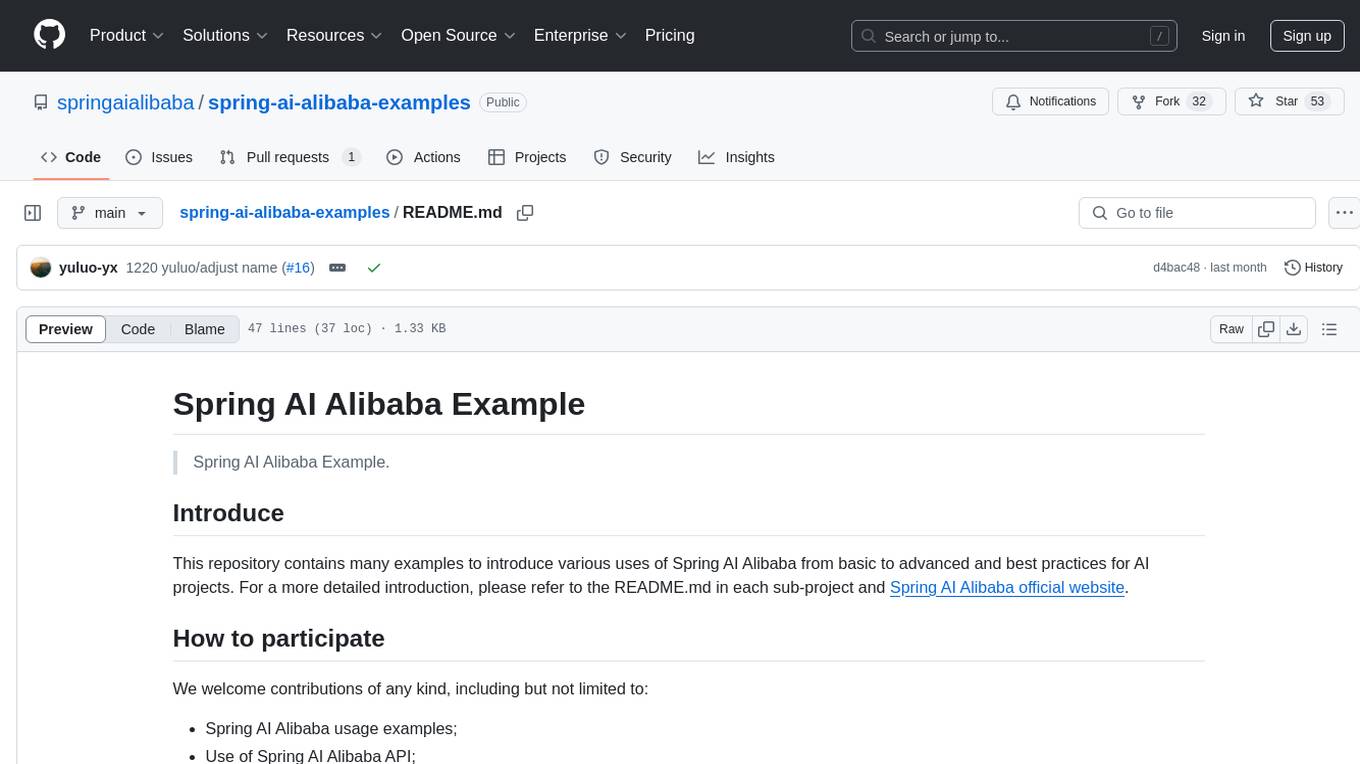
spring-ai-alibaba-examples
This repository contains examples showcasing various uses of Spring AI Alibaba, from basic to advanced, and best practices for AI projects. It welcomes contributions related to Spring AI Alibaba usage examples, API usage, Spring AI usage examples, and best practices for AI projects. The project structure is designed to modularize functions for easy access and use.
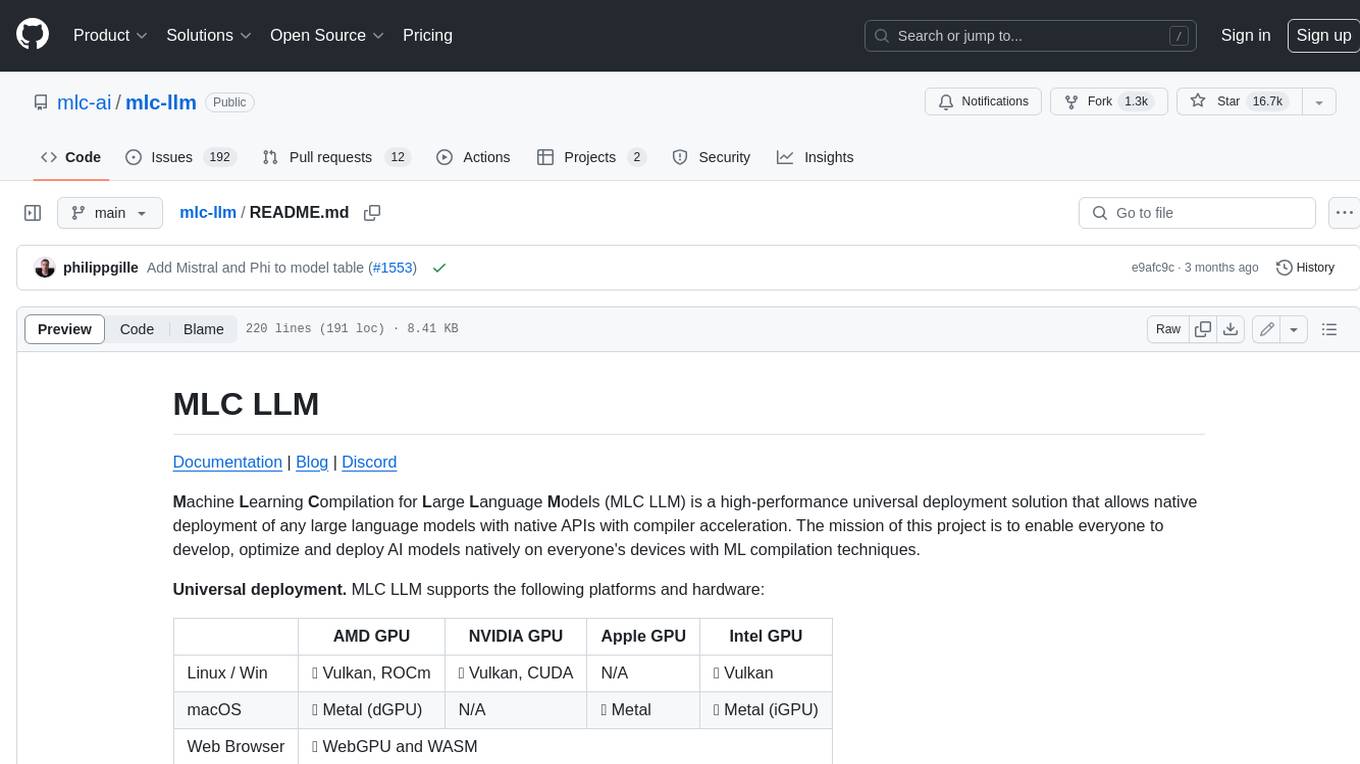
mlc-llm
MLC LLM is a high-performance universal deployment solution that allows native deployment of any large language models with native APIs with compiler acceleration. It supports a wide range of model architectures and variants, including Llama, GPT-NeoX, GPT-J, RWKV, MiniGPT, GPTBigCode, ChatGLM, StableLM, Mistral, and Phi. MLC LLM provides multiple sets of APIs across platforms and environments, including Python API, OpenAI-compatible Rest-API, C++ API, JavaScript API and Web LLM, Swift API for iOS App, and Java API and Android App.
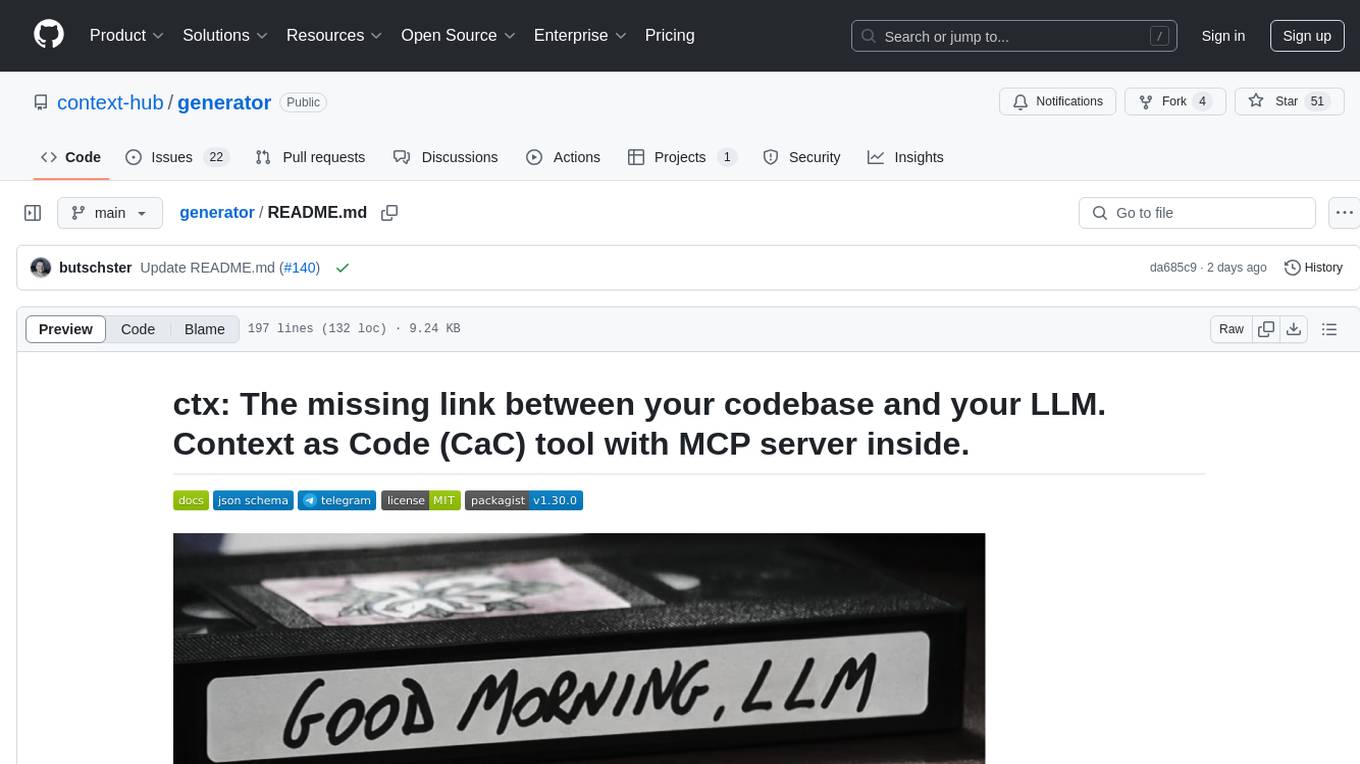
generator
ctx is a tool designed to automatically generate organized context files from code files, GitHub repositories, Git commits, web pages, and plain text. It aims to efficiently provide necessary context to AI language models like ChatGPT and Claude, enabling users to streamline code refactoring, multiple iteration development, documentation generation, and seamless AI integration. With ctx, users can create structured markdown documents, save context files, and serve context through an MCP server for real-time assistance. The tool simplifies the process of sharing project information with AI assistants, making AI conversations smarter and easier.
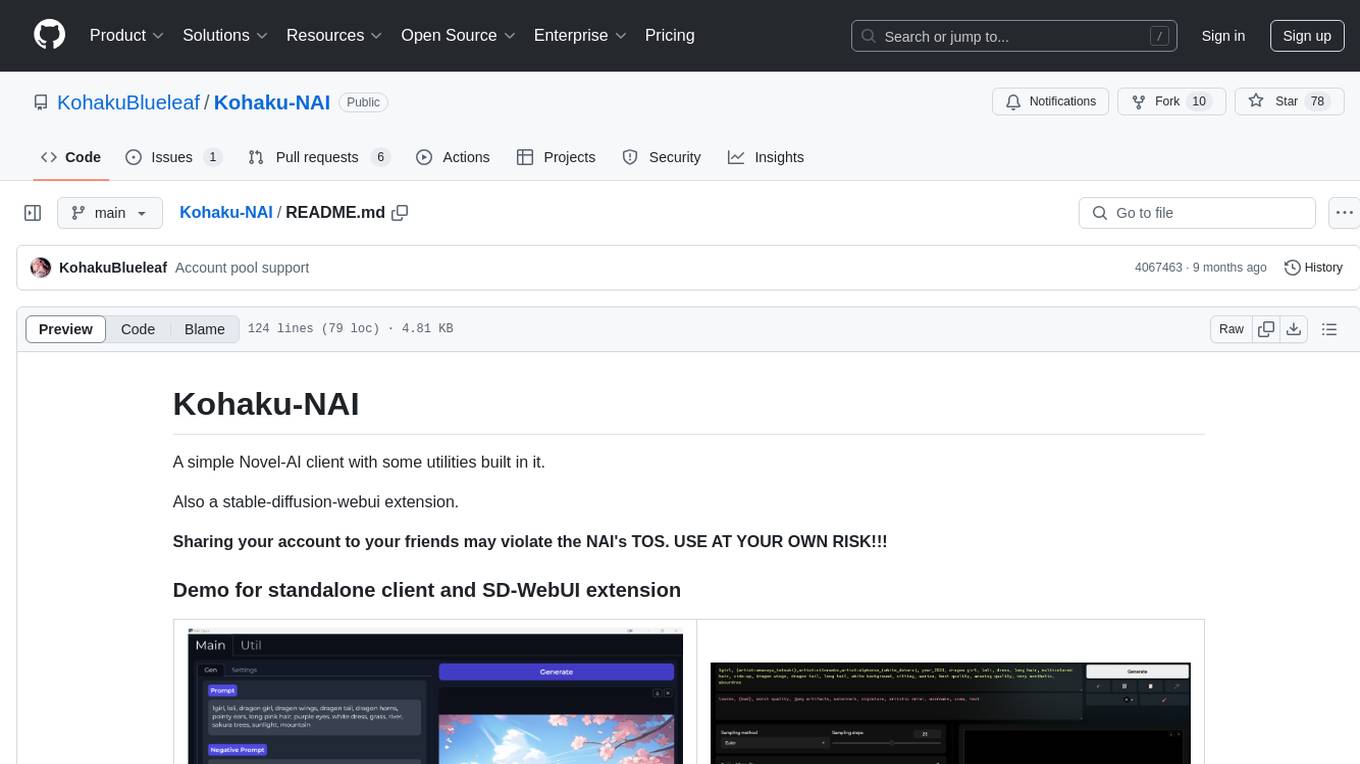
Kohaku-NAI
Kohaku-NAI is a simple Novel-AI client with utilities like a generation server, saving images automatically, account pool, and an auth system. It also includes a standalone client, a DC bot based on the generation server, and a stable-diffusion-webui extension. Users can use it to generate images with NAI API within sd-webui, as a standalone client, gen server, or DC bot. The project aims to add features like QoS system, better client, random prompts, and fetch account info in the future.
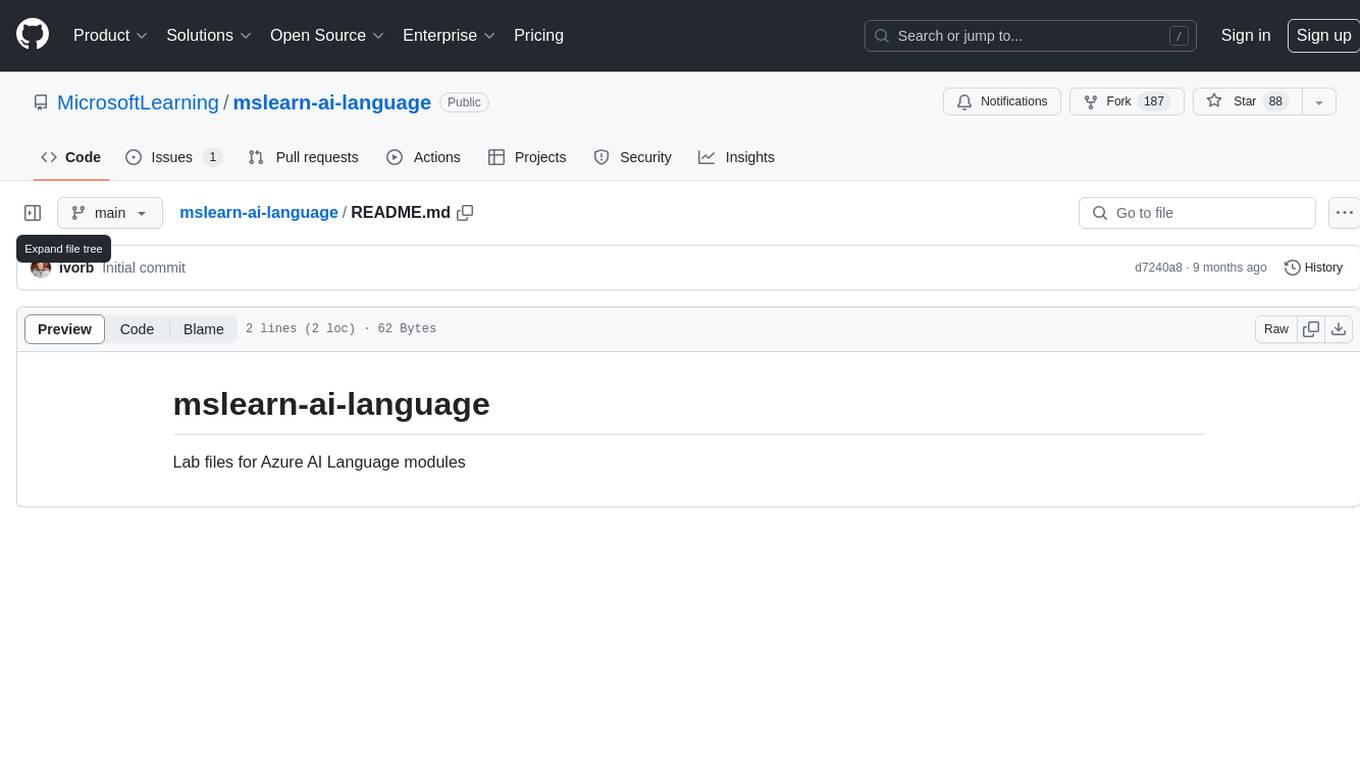
mslearn-ai-language
This repository contains lab files for Azure AI Language modules. It provides hands-on exercises and resources for learning about various AI language technologies on the Azure platform. The labs cover topics such as natural language processing, text analytics, language understanding, and more. By following the exercises in this repository, users can gain practical experience in implementing AI language solutions using Azure services.
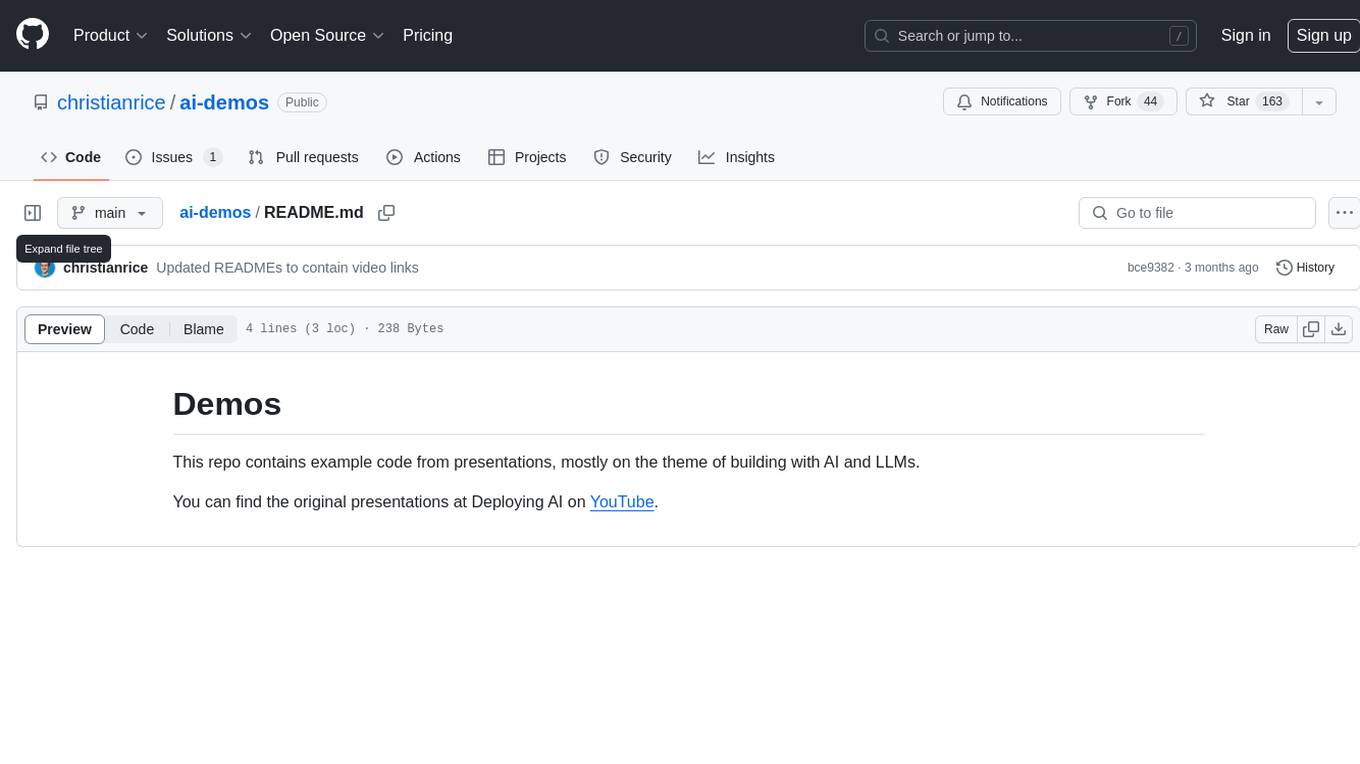
ai-demos
The 'ai-demos' repository is a collection of example code from presentations focusing on building with AI and LLMs. It serves as a resource for developers looking to explore practical applications of artificial intelligence in their projects. The code snippets showcase various techniques and approaches to leverage AI technologies effectively. The repository aims to inspire and educate developers on integrating AI solutions into their applications.
For similar tasks

Azure-Analytics-and-AI-Engagement
The Azure-Analytics-and-AI-Engagement repository provides packaged Industry Scenario DREAM Demos with ARM templates (Containing a demo web application, Power BI reports, Synapse resources, AML Notebooks etc.) that can be deployed in a customer’s subscription using the CAPE tool within a matter of few hours. Partners can also deploy DREAM Demos in their own subscriptions using DPoC.

sorrentum
Sorrentum is an open-source project that aims to combine open-source development, startups, and brilliant students to build machine learning, AI, and Web3 / DeFi protocols geared towards finance and economics. The project provides opportunities for internships, research assistantships, and development grants, as well as the chance to work on cutting-edge problems, learn about startups, write academic papers, and get internships and full-time positions at companies working on Sorrentum applications.

tidb
TiDB is an open-source distributed SQL database that supports Hybrid Transactional and Analytical Processing (HTAP) workloads. It is MySQL compatible and features horizontal scalability, strong consistency, and high availability.

zep-python
Zep is an open-source platform for building and deploying large language model (LLM) applications. It provides a suite of tools and services that make it easy to integrate LLMs into your applications, including chat history memory, embedding, vector search, and data enrichment. Zep is designed to be scalable, reliable, and easy to use, making it a great choice for developers who want to build LLM-powered applications quickly and easily.

telemetry-airflow
This repository codifies the Airflow cluster that is deployed at workflow.telemetry.mozilla.org (behind SSO) and commonly referred to as "WTMO" or simply "Airflow". Some links relevant to users and developers of WTMO: * The `dags` directory in this repository contains some custom DAG definitions * Many of the DAGs registered with WTMO don't live in this repository, but are instead generated from ETL task definitions in bigquery-etl * The Data SRE team maintains a WTMO Developer Guide (behind SSO)

mojo
Mojo is a new programming language that bridges the gap between research and production by combining Python syntax and ecosystem with systems programming and metaprogramming features. Mojo is still young, but it is designed to become a superset of Python over time.

pandas-ai
PandasAI is a Python library that makes it easy to ask questions to your data in natural language. It helps you to explore, clean, and analyze your data using generative AI.

databend
Databend is an open-source cloud data warehouse that serves as a cost-effective alternative to Snowflake. With its focus on fast query execution and data ingestion, it's designed for complex analysis of the world's largest datasets.
For similar jobs

weave
Weave is a toolkit for developing Generative AI applications, built by Weights & Biases. With Weave, you can log and debug language model inputs, outputs, and traces; build rigorous, apples-to-apples evaluations for language model use cases; and organize all the information generated across the LLM workflow, from experimentation to evaluations to production. Weave aims to bring rigor, best-practices, and composability to the inherently experimental process of developing Generative AI software, without introducing cognitive overhead.

LLMStack
LLMStack is a no-code platform for building generative AI agents, workflows, and chatbots. It allows users to connect their own data, internal tools, and GPT-powered models without any coding experience. LLMStack can be deployed to the cloud or on-premise and can be accessed via HTTP API or triggered from Slack or Discord.

VisionCraft
The VisionCraft API is a free API for using over 100 different AI models. From images to sound.

kaito
Kaito is an operator that automates the AI/ML inference model deployment in a Kubernetes cluster. It manages large model files using container images, avoids tuning deployment parameters to fit GPU hardware by providing preset configurations, auto-provisions GPU nodes based on model requirements, and hosts large model images in the public Microsoft Container Registry (MCR) if the license allows. Using Kaito, the workflow of onboarding large AI inference models in Kubernetes is largely simplified.

PyRIT
PyRIT is an open access automation framework designed to empower security professionals and ML engineers to red team foundation models and their applications. It automates AI Red Teaming tasks to allow operators to focus on more complicated and time-consuming tasks and can also identify security harms such as misuse (e.g., malware generation, jailbreaking), and privacy harms (e.g., identity theft). The goal is to allow researchers to have a baseline of how well their model and entire inference pipeline is doing against different harm categories and to be able to compare that baseline to future iterations of their model. This allows them to have empirical data on how well their model is doing today, and detect any degradation of performance based on future improvements.

tabby
Tabby is a self-hosted AI coding assistant, offering an open-source and on-premises alternative to GitHub Copilot. It boasts several key features: * Self-contained, with no need for a DBMS or cloud service. * OpenAPI interface, easy to integrate with existing infrastructure (e.g Cloud IDE). * Supports consumer-grade GPUs.

spear
SPEAR (Simulator for Photorealistic Embodied AI Research) is a powerful tool for training embodied agents. It features 300 unique virtual indoor environments with 2,566 unique rooms and 17,234 unique objects that can be manipulated individually. Each environment is designed by a professional artist and features detailed geometry, photorealistic materials, and a unique floor plan and object layout. SPEAR is implemented as Unreal Engine assets and provides an OpenAI Gym interface for interacting with the environments via Python.

Magick
Magick is a groundbreaking visual AIDE (Artificial Intelligence Development Environment) for no-code data pipelines and multimodal agents. Magick can connect to other services and comes with nodes and templates well-suited for intelligent agents, chatbots, complex reasoning systems and realistic characters.
